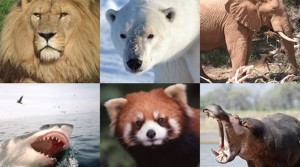The world is experiencing a “biological annihilation” of its animal species because of humans’ effect on the Earth, a new study has found.
Researchers mapped 27,600 species of birds, amphibians, mammals and reptiles — nearly half of known terrestrial vertebrate species — and concluded the planet’s sixth mass extinction even was much worse than previously thought.
They found the number of individual animals that once lived alongside humans had now fallen by as much as 50 per cent, according to a paper in the journal Proceedings of the National Academy of Sciences.
The study’s authors, Rodolfo Dirzo and Paul Ehrlich from the Stanford Woods Institute for the Environment, and Gerardo Ceballos, of the National Autonomous University of Mexico, said this amounted to “a massive erosion of the greatest biological diversity in the history of the Earth”. The authors argued that the world cannot wait to address damage to biodiversity and that the window of time for effective action was very short, “probably two or three decades at most”.
Mr Dirzo said the study’s results showed “a biological annihilation occurring globally, even if the species these populations belong to are still present somewhere on Earth”.
The research also found more that 30 per cent of vertebrate species were declining in size or territorial range. Looking at 177 well-studied mammal species, the authors found that all had lost at least 30 per cent of the geographical area they used to inhabit between 1990 and 2015. And more than 40 per cent of these species had lost more than 80 per cent of their range.
The authors concluded that population extinction were more frequent than previously believed and a “prelude” to extinction.
source: independent.co.uk
Ask me anything
Explore related questions





